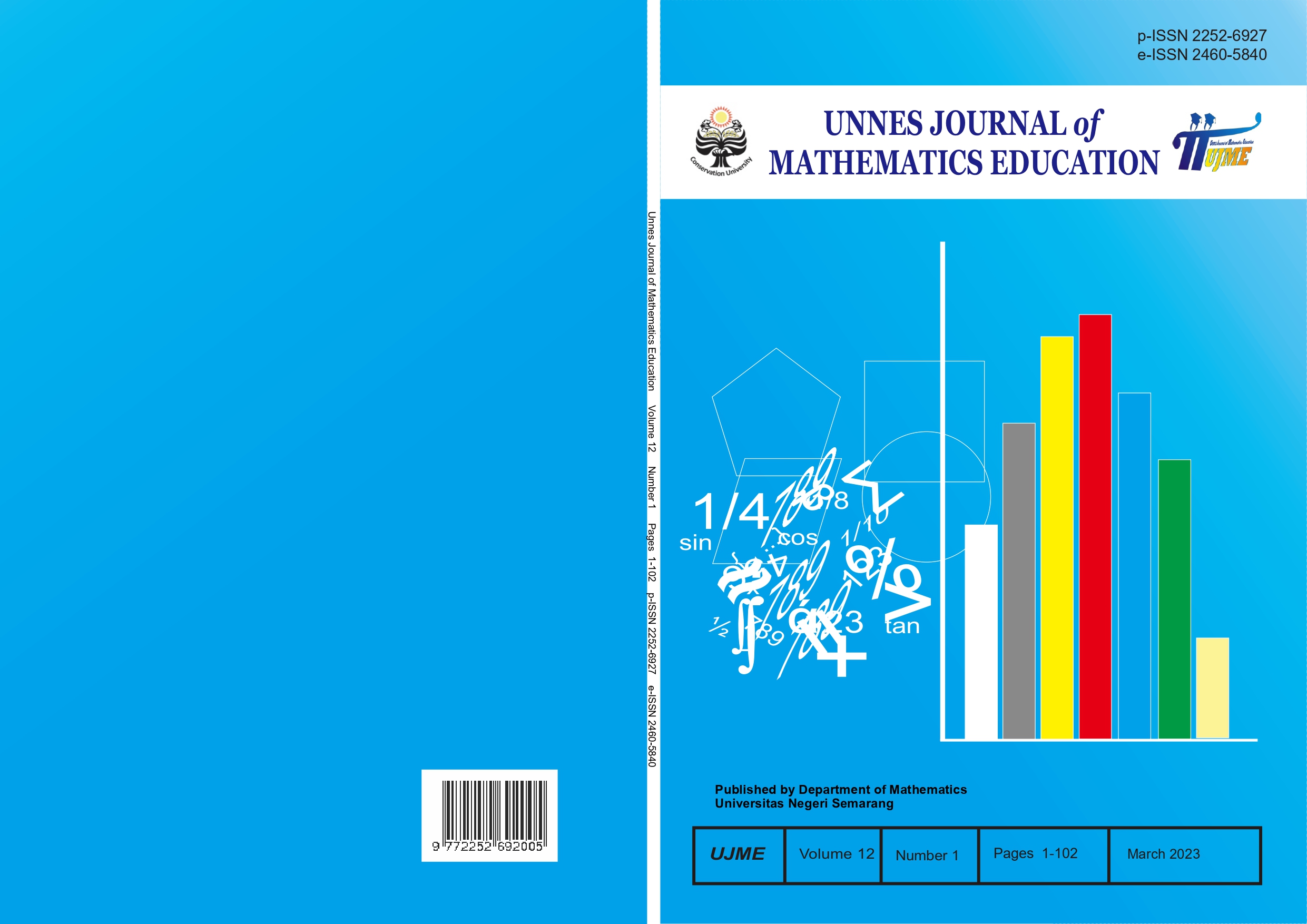The Moderating Effect of Technology Attitude on the Relationship between Math Self-Efficacy and Attitudes towards Mathematics
##plugins.themes.academic_pro.article.main##
Abstract
The study examined whether math self-efficacy significantly affects attitudes towards mathematics. It also explored the moderating effect of technology attitude on the link between mathematics self-efficacy and attitudes towards mathematics. A total of 174 Science, Technology and Engineering (STE) students (79 males and 95 females) of Tagum City National High School participated in the study. Three (3) valid and reliable instruments were used to assess students’ level of math self-efficacy, technology attitude, and attitudes towards mathematics. Results show that the level of math self-efficacy, and attitudes towards math of the STE students is moderate. Moreover, the level of technology attitude of the students is high. There is a significant relationship between math self-efficacy and attitudes towards math. However, there is no significant relationship between technology attitude and attitudes towards mathematics. The negative moderating effect of technology attitude on the relationship between math self-efficacy and attitudes towards math is established.
##plugins.themes.academic_pro.article.details##
References
Anthony, G., & Walshaw, M. (2009). Characteristics of effective teaching of Mathematics: A view from the West. Journal of Mathematics Education, 2(2), 147-164.
Bandura, A. (1977). Social learning theory. New York: General Learning Press.
Bohner, G., & Wänke, M. (2002). Attitudes and attitude change. Psychology Press.
Callahan, W.J. (1981). Adolescent attitudes towards mathematics. Mathematics Teacher. Vol 66 No 4 pp 751-755.
Chiu, M. M. & Klassen, R. M. (2010). Relations of mathematics self-concept and its calibration with mathematics achievement: Cultural differences among fifteen-year-olds in 34 countries. Learning and Instruction, 18, 321 – 336.
Clark, R. E. (1999). Media will never influence learning. [Online] available: http://www.usq.edu.au/material/unit/resources/clark/media.htm [2006, July 18].
Cockcroft, W.H. (1982). Mathematics counts. London: H.M. Stationery Office.
Colgan, L. (2014). Making math children will love: Building positive mathitudes to improve student achievement in mathematics. What Works? Research into Practice Research Monograph 56. Student Achievement Division, Ontario Ministry of Education. Retrieved from
http://www.edu.gov.on.ca/eng/literacynumeracy/inspire/research/WW_MakingMath.pdf
Evans, K.M. (1965). Attitudes and interest in education. London: Routledge and Keg and Paul.
Gailbraith, P., & Haines, C. (1998). Disentangling the nexus: Attitudes to mathematics and technology in a computer learning environment. Educational Studies in Mathematics, 36, 275–290.
Gallagher, A. & De Lisi, R. (1994). Gender differences in scholastic aptitude test: Mathematics problem solving among high-ability students. Journal of Educational Psychology, 86(2), 204 – 211.
Kundu, A. & Ghose, A. (2016). The relationship between attitude and self efficacy in mathematics among higher secondary students. Journal of Humanities and Social Science, 21(4), 25 – 31.
Ma, X. & Kishor, N. (1997). Assessing the relationship between attitude towards mathematics and achievement in mathematics: A meta-analysis. Journal for Research in Mathematics Education, 28(1), 27 – 47.
May, D. K. (2009). Mathematics self-efficacy and anxiety questionnaire. Unpublished Doctoral Dissertation, The University of Georgia.
Majeed, A. A., Darmawan, I. G. N. & Lynch, P. (2013). A confirmatory factor analysis of attitudes toward mathematics (ATMI). The Mathematics Educator, 15(1), 121 – 135.
Meagher, M. (2012). Students' relationship to technology and conceptions of mathematics while learning in a computer algebra system environment. International Journal for Technology in Mathematics Education, 19(1), 3-16.
Nicolaidou, M. & Philippou, G. (2003). Attitudes towards mathematics, self-efficacy and achievement in problem solving. European Research in Mathematics III.
OECD. (2012). PISA 2012 assessment and analytical framework. Mathematics, reading, science, problem solving and financial literacy. Paris: OECD Publishing.
Ontario Ministry of Education. (2003). Early math strategy. The Report of the Expert Panel on Early Math in Ontario. Retrieved from http://www.edu.gov.on.ca/eng/document/reports/math/math.pdf
Opara, I. M., Magnus-Arewa, E.A., & Nwaukwu, C. (2017). Predictors of students’ attitudes towards mathematics in Obio-akpor local government area of Rivers State, Nigeria. International Journal of Education, Learning and Development, 5(7), 73 – 85.
Oppenheim, A.N. (1966). Questionnaire design: Attitude measurement. London: Heinemann Educational Books.
Ozel, S., Yetkiner, Z. & Capraro, R. (2008). Technology in K-12 mathematics classrooms. Short Reports, 108 (2), 80-85.
Ozgen, K. & Bindak, R. (2011). Determination of self-efficacy beliefs of high school students towards math literacy. Educational Sciences: Theory & Practice, 11(2), 1073-1089.
Pierce, R., & Stacey, K. (2004). A framework for monitoring progress and planning teaching towards the effective use of computer algebra systems. International Journal of Computers for Mathematical Learning, 9, 59-93.
Pierce, R., Stacey, K. & Barkatsas, A. (2007). A scale for monitoring students’ attitudes to learning mathematics with technology. Computers & Education, 48(2007), 285 – 300.
Sewell, B. (1981). Use of mathematics by adults in daily life. Leicester: Advisory Council for Adult Continuing Education (ACACE).
Stanic, G.M.A & Hart, L.E (1995). Attitudes, persistence and mathematics achievement: Qualifying race and sex difference in Secada, W.G, Fennema, E and Adajiana, L.B (eds.). New Directions for Equity in Mathematics Educations. New York: Cambridge University Press.
Syyeda, F. (2016). Understanding attitudes towards mathematics (ATM) using a multi-modal model: An exploratory case study with secondary school children in England. Cambridge Open-Review Educational Research e-Journal, 3, 32 – 62.
Tamim, R.M., Bernard, R.M., Borokhovski, E., Abrami, P.C. & Schmid, R.F. (2011). What forty years of research says about the impact of technology on learning: A second-order meta-analysis and validation study. Review of Educational Research, 81(1), 4-28.
Tapia, M. (1996). The Attitudes toward mathematics instrument. Paper presented at the annual meeting of the Mid-south Educational Research Association, Tuscaloosa, AL (ERIC Reproduction Service No. ED 404165).
Vale, C., & Leder, G. (2004). Student views of computer-based mathematics in the middle years: does gender make a difference? Educational Studies in Mathematics, 56, 287–312.
Wasiche, J.L. (2006). Teaching techniques that enhance students’ performance in mathematics in selected public secondary schools in Butere-Mumias District, Kenya. Unpublished M.Ed Thesis. Kenyatta University.
Watson, J.S. (1998). If you don’t have it, you can’t find it: A close look at students’ perceptions of using technology. Journal of the American Society for Information Science, 49(11), 1024 – 1036.
Wright, R. T., & Lauda, D. P. (1993). Technology education: A position statement. The Technology Teacher, 52(4), 3-5.
